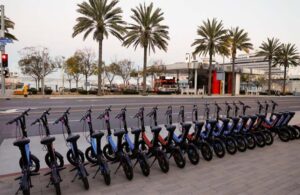Penetrating electric mobility adoption, Convergence Energy Service (CESL) has announced to soon come out with affordable battery electric cargo bicycles targeted at the rural markets.
 The segment, at present, exists mostly for the urban segment and has not been experimented in India’s hinterlands.
The segment, at present, exists mostly for the urban segment and has not been experimented in India’s hinterlands.
Vishal Kapoor, the newly appointed CEO of CESL, said, “We were working with certain rural-focused organizations and that’s when we realized the demand for such a product.”
CESL’s expertise lies in testing the waters for innovative ideas and novel products targeted at specific segments before extending them nationally.
A couple of years ago, CESL floated tenders to procure 100,000 electric three-wheelers, which were intended to be given on lease to interested parties.
The same year, it was said to procure 50,000 electric two-wheelers, which were to be leased or sold outright.
The company was also engaged in the process of supplying 25,000 electric two-wheelers to the Andhra Pradesh government followed by Kerala and Goa.
“The electric cargo bicycle project is in the very initial stage right now. We are engaged with a couple of villages so far and we are trying to see how the offtake will be and whether there will be demand for it. We have started engaging with the OEMs as well to know from the supply standpoint,” Kapoor said.
A typical electric cargo bicycles costs Rs 40,000-50,000 in India, but the size of the market is unknown as there are several players from the unorganized sector. Hero Cycles is one of the popular brands in this segment with the Hero Lectro brand.
These electric bicycles come with pedal assist and can run for 30 km on a full charge without pedalling. In urban pockets, such electric bicycles are used by courier delivery personnel, food delivery workers and others. The cost of running such a vehicle, which does not require registration or driving licence, is Rs 0.2 per km, which is a fraction of the cost of running a petrol two-wheeler.
Kapoor believes that India’s electric two-wheeler market no longer needs subsidy support and is mature enough to grow on its own. “Our role as a government company is to germinate markets that do not exist. The market for LED bulbs and smart meters did not exist back then, but now we have a huge market for them. We also helped in creating a market for electric four-wheelers, electric three-wheelers and electric buses,” Kapoor added.

